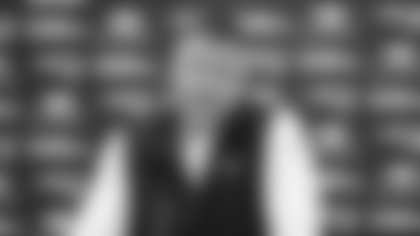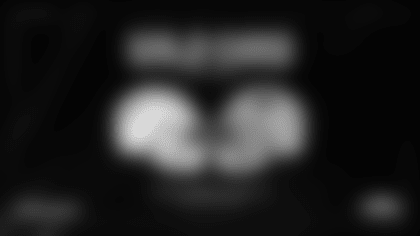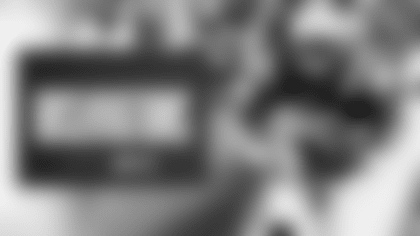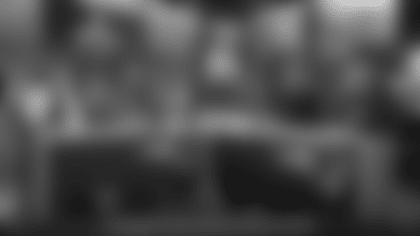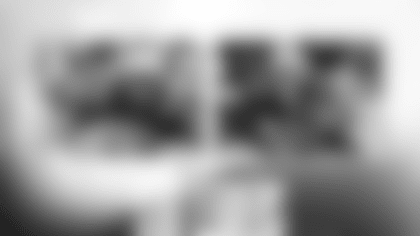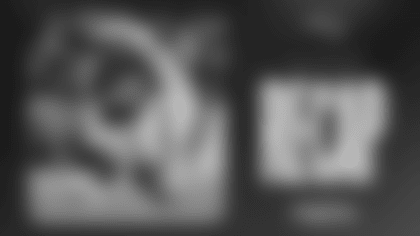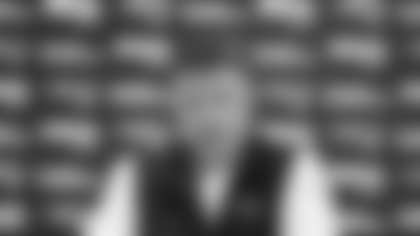Patriots director of player personnel Nick Caserio addresses the media during his conference call on Tuesday, December 01, 2009.
Q: Do you feel like the game got away from the team early against the Saints and you weren't able to pull things back in?
NC: There's an ebb and flow to every game. There were points to that game [last night] where we were competitive. I think when we scored there in the third quarter, and cut it to a seven point deficit, we were doing some things well offensively and we were doing some things collectively as a team. As the game progressed on, they ended up making a few more plays than we did and our job offensively and defensively is that you have to move forward to the next play and kind of keep moving ahead. We did that to the best of our ability and in the end, they made a few more plays than...You know, I think Bill [Belichick] talked about it, I think there were eight plays that accounted for whatever it was - 300 and something yards. So when things happen that quickly, you have to be able to respond and get back at it and that's what we try to do offensively and really what we try to do as a team.
Q: Did noise play a factor for the offense in the game vs. the Saints?
NC: I don't think so. I think we play in a lot of noisy venues, whether it's in Indianapolis or other dome stadiums. We practice during the course of the week with noise and try to prepare ourselves for the elements. The noise really isn't a factor. I think it really comes down to execution more than anything else, but I wouldn't say the noise was that big of an issue. We know it's going to be loud on the road wherever we go and that's just how it is.
Q: [On the youth and having a vocal veteran presence on defense when things go wrong]
NC: When you get to this point in the season when you've played 12 games or 16 games - if you count the preseason games - the guys that are on the field, they play a lot of football together. So the communication is...once the game is going on on the field, everything takes place between the players and it's up to them to communicate. We've had a lot of guys that have played a lot of football at different points. So in the end, it's up to the players to kind of get things figured out and communicate and whoever steps forward and does that then that's who it is. In the end, it's a collective thing just from a communication standpoint. You do it as a group. It's not necessarily one person or one individual that can really handle that.
Q: [On the rookie impact as it pertains to the wide receiver position]
NC: Yeah, I think with that position - I think there're a lot of positions - but I think with the receiver position the offenses are just quite a bit different than what you do in college, whether it's lining up in multiple spots [or] whether it's the amount of route adjustments. It's not just line up and run the route regardless of the coverage. It's, 'OK, if they play this coverage, this is how this route adjusts.' Or as the play is happening and they rotate the coverage, 'This is how you have to adjust.' So, there's an element when you go from college to the NFL - the amount of coverages, the combination coverages - the number of things you actually see are quite a bit different than you see in most collegiate situations. It takes time, but [for] a lot of young players, regardless of the position that they're playing, it is going to be difficult. But, I think there're a lot more moving parts at that position, especially if you're playing inside, playing outside and just the variety and multitude of things that you see from defenses this day and age.
Q: [On what the Saints did defensively]
NC: Some of the things New Orleans did, they did a couple things we hadn't seen before, but for the most part the basic premise of what they were doing defensively was the same. They play a variety of different looks. They do a variety of different [things] with the front. They do a variety of different things with the coverages. So, as the game goes on, you just have to adjust and react to what they're doing. Our job offensively is that whenever we're on the field [we need] to score points. That's why they're on the field. They did a good job at points. There were some times where we were able to combat some things offensively. As the game goes on, you just have to react to what the defense is giving you and try to do our job offensively and put points on the board and we were more successful at different points in the game than we were at others.
Q: What are your thoughts on using Julian Edelman as the third quarterback rather than at wide receiver?
NC: It was a decision that we made. Could he have played? Would he have played? I'm not sure, but he was at the game and it was more for emergency purposes more than anything else. He's taken some snaps at different points during practice and those types of things. So, that was just a decision that we made just as far as the game day roster was concerned and the numbers we were dealing with.
Q: Can you talk about the decision to take Tom Brady out in the fourth quarter?
NC: That's something you'd probably ask Bill [Belichick]. That's his call in the end, so that's probably a question better served for Bill and go from there.











